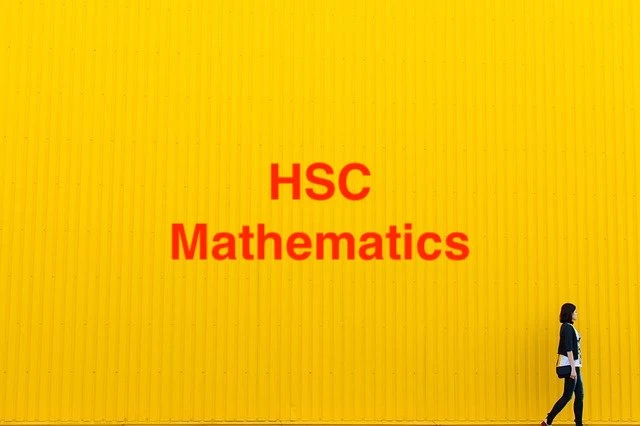Balbharati solutions for Mathematics and Statistics 1 (Commerce) 12th Standard HSC Maharashtra State Board Chapter 1 Mathematical Logic Exercise 1.8 [Page 21]
All the stars are shining if it is night.
Let \(q\): All stars are shining.
\(p\): It is night.
The given statement in symbolic form is \(p \rightarrow q\). Its negation is \( \sim (p \rightarrow q) \equiv p \land \sim q\).
∴ The negation of a given statement is ‘It is night and some stars are not shining’.
\(\forall n \in N, n + 1 > 0\)
\(\exists n \in N \text{ such that } n + 1 \leq 0\).
\(\exists n \in N, (n^2 + 2) \text{ is odd number.}\)
\(\forall n \in N, (n^2 + 2) \text{ is not odd number (i.e., it is an even number).}\)
Some continuous functions are differentiable.
All continuous functions are not differentiable.
\((p \rightarrow r) \land q\)
\( \sim [(p \rightarrow r) \land q] \equiv \sim(p \rightarrow r) \lor \sim q\) ....[Negation of conjunction]
\(\equiv (p \land \sim r) \lor \sim q\) ....[Negation of implication]
\(\sim(p \lor q) \rightarrow r\)
\( \sim[\sim(p \lor q) \rightarrow r] \equiv \sim(p \lor q) \land \sim r\) ....[Negation of implication]
\(\equiv (\sim p \land \sim q) \land \sim r\) ....[Negation of disjunction (De Morgan's Law)]
\((\sim p \land q) \land (\sim q \lor \sim r)\)
\(\sim[(\sim p \land q) \land (\sim q \lor \sim r)]\)
\(\equiv \sim(\sim p \land q) \lor \sim (\sim q \lor \sim r)\) ....[Negation of conjunction (De Morgan's Law)]
\(\equiv [\sim(\sim p) \lor \sim q] \lor [\sim(\sim q) \land \sim(\sim r)]\) ....[Negation of conjunction and disjunction (De Morgan's Laws)]
\(\equiv (p \lor \sim q) \lor (q \land r)\) ....[Negation of negation]
If it snows, then they do not drive the car.
Let \(p\): It snows.
\(q\): They do not drive the car.
∴ The given statement is \(p \rightarrow q\).
Its converse is \(q \rightarrow p\):
If they do not drive the car then it snows.
Its inverse is \(\sim p \rightarrow \sim q\):
If it does not snow then they drive the car.
Its contrapositive is \(\sim q \rightarrow \sim p\):
If they drive the car then it does not snow.
If he studies, then he will go to college.
Let \(p\): He studies.
\(q\): He will go to college.
∴ The given statement is \(p \rightarrow q\).
Its converse is \(q \rightarrow p\):
If he will go to college then he studies.
Its inverse is \(\sim p \rightarrow \sim q\):
If he does not study then he will not go to college.
Its contrapositive is \(\sim q \rightarrow \sim p\):
If he will not go to college then he does not study.
\((p \rightarrow q) \lor (p \rightarrow r)\)
\(\sim[(p \rightarrow q) \lor (p \rightarrow r)]\)
\(\equiv \sim(p \rightarrow q) \land \sim(p \rightarrow r)\) ....[Negation of disjunction (De Morgan's Law)]
\(\equiv (p \land \sim q) \land (p \land \sim r)\) ....[Negation of implication]
\((p \leftrightarrow q) \lor (\sim q \rightarrow \sim r)\)
\(\sim[(p \leftrightarrow q) \lor (\sim q \rightarrow \sim r)]\)
\(\equiv \sim(p \leftrightarrow q) \land \sim(\sim q \rightarrow \sim r)\) ....[Negation of disjunction (De Morgan's Law)]
\(\equiv [(p \land \sim q) \lor (q \land \sim p)] \land \sim(\sim q \rightarrow \sim r)\) ....[Negation of double implication]
\(\equiv [(p \land \sim q) \lor (q \land \sim p)] \land [\sim q \land \sim(\sim r)]\) ....[Negation of implication]
\(\equiv [(p \land \sim q) \lor (q \land \sim p)] \land (\sim q \land r)\) ....[Negation of negation]
\((p \rightarrow q) \land r\)
\(\sim[(p \rightarrow q) \land r]\)
\(\equiv \sim (p \rightarrow q) \lor \sim r\) ....[Negation of conjunction (De Morgan's Law)]
\(\equiv (p \land \sim q) \lor \sim r\) ....[Negation of implication]
